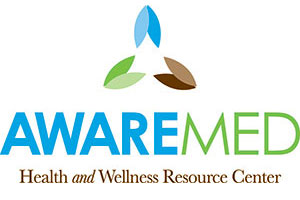Chromosome Testing for Infertility in Knoxville, TN

Chromosomes, found in pairs, are microscopic structures housing the DNA that regulates human development, growth and function. For example, sex chromosomes—that determine whether a human being develops into a male or female—include two X chromosomes in women, while men have one X and one Y chromosome.
Sometimes, a male or female's infertility is driven by chromosomal abnormalities. Genetic testing involves the use of a blood test to examine an individual's genetic makeup or DNA, focusing on the chromosomes or mutations in the genetic code. Genetics is a broad term and can involve a variety of conditions that have their roots in human genetic makeup.
For example, when looking at a specific variation of male infertility where there is an absence of sperm in the ejaculate, it has been determined that, in 10-20 percent of those males, there is a Y chromosome deletion.
Of the 15 percent of couples unable to conceive a child, some estimates suggest male infertility issues versus female infertility issues are implicated roughly half and half. Other sources argue that one-third of cases are female in origin, one-third male and the final third a mix of male and female issues, or simply unknown. Whether the source of the infertility is male or female, genetics are implicated in at least 10 percent of those cases. For men, it can be as high as 15 percent.
If a chromosomal abnormality exists in either you or your partner, it can cause recurrent miscarriages. Chromosome testing and genetic counseling can help assess the viability of successfully carrying a child to term, given the particular chromosomal abnormality identified.
To schedule a consultation with a fertility specialist in Knoxville that can conduct a chromosome analysis, call (423) 482-8711 or contact Dr. Dalal Akoury online.
Types of Chromosome Testing for Infertility
A myriad of methods can be used in genetic fertility testing. Different tests will examine different aspects of your genetic material. Your healthcare provider will help you to determine which genetic testing is most essential and whether testing is necessary for both male and female, or even for the embryo.
Some of the most common genetic tests for infertility are:
- Karyotype (also known as a chromosome analysis)
- Y chromosome microdeletion test
- Cystic fibrosis (CF) gene test
- Peripheral blood karyotype
- Yq microdeletion screening
- CFTR gene
- Screening for CFTR mutations (including the 5T allele)
- KAL1 gene-Kallmann syndrome
- Androgen receptor gene
- 5 alpha-reductase-2 gene (SRD5A2)
- Aneuploidy analysis in spermatozoa
- Fragile X syndrome
Reasons to Consider Chromosome Testing for Infertility
Chromosome testing can identify factors that are preventing conception and thus provide direction for more effective fertility treatment. Some of the criteria used for determining if chromosome testing for infertility is a recommended avenue in your fertility treatment include:
- Family history of infertility
- Failed attempts at in vitro fertilization
- Multiple miscarriages
- Family history of genetic disorders or diseases
- Certain ethnic backgrounds
In the past, genetic testing was recommended only in those cases, but now genetic testing is more accessible and recommended to any couple addressing infertility issues, and is sometimes covered by insurance.
What to Expect from Chromosome Testing for Infertility
Your healthcare professional, using a blood or saliva test, generally sends your sample off for genetic analysis by an outside provider, after discussing with you the options and types of tests recommended in your situation. Genetic counseling is provided by the outside provider, and your healthcare provider can develop a treatment plan based on the information gained in your chromosome analysis.
Even if there are aspects of infertility in either partner that have a genetic basis, there may be specialized interventions that can be attempted, or alternative methods to enhance fertility, or other options to explore to have a child. These are some of the options your healthcare provider can discuss with you:
- The use of specialized in vitro fertilization options like intracytoplasmic sperm injection to maximize the fertilization of viable eggs, or preimplantation genetic screening to implant only the most viable embryos
- Alternative treatments like acupuncture to enhance fertility
- Available options for surrogacy or adoption
Chromosome testing helps to pinpoint the nature and prognosis of the infertility issues so that an optimal plan can be developed.
If you've been suffering from infertility, chromosome testing for infertility can be an effective, informative step in treating your condition. Request more information about chromosome analysis and other aspects of genetic fertility testing today. Call (423) 482-8711 or contact Dr. Dalal Akoury online.
AWAREmed Health and Wellness Resource Center
Address
1604 Lamons LaneSuite 202
Johnson City, TN 37604
(423) 482-8711
www.awaremed.com
Hours
Mon:
9:00 am - 5:00 pm
Tue:
9:00 am - 5:00 pm
Wed:
9:00 am - 5:00 pm
Thu:
9:00 am - 5:00 pm
Fri:
9:00 am - 5:00 pm


